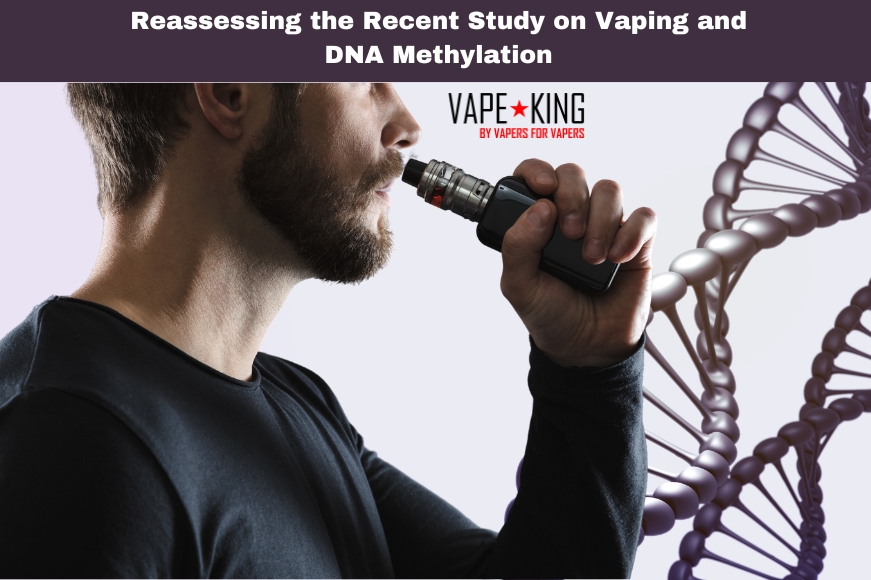Free Shipping on orders R1000 or more!
Reassessing the Recent Study on Vaping and DNA Methylation

A recent study, detailed in Cancer Research, has ignited widespread discussion regarding DNA methylation changes in both conventional cigarette smokers and e-cigarette users. While the study's findings are attention-grabbing, experts caution against jumping to conclusions about the potential cancer risks associated with vaping.
The study uncovered similar DNA changes in the buccal epithelial cells of smokers and e-cigarette users with limited smoking histories, indicating heightened methylation levels linked to cancerous tissues. However, experts urge restraint in directly linking these changes to cancer risk, highlighting the need to consider broader epidemiological data. Despite the shared epigenetic alterations, it remains unclear whether both groups face uniform cancer risks.
Media headlines, such as "Vaping 'linked to cancer and damages body like smoking'" from The Times and "Fears vaping could cause CANCER" from The Mail, have fueled unwarranted concern. Yet, these headlines oversimplify the study's findings and fail to account for the nuanced complexities of cancer development and the relative risks of vaping versus smoking.
While the study contributes valuable insights, it does not conclusively establish a causal link between vaping and cancer. Experts, including Dr. Mangesh Thorat and George Laking, caution against equating short-term cellular changes with long-term cancer risks. Prof. Peter Shields suggests that vapers may share more similarities with never-smokers, potentially indicating a lower cancer risk associated with vaping.
Critics, such as Clive Bates, argue that the study overlooks significant differences in cancer risks between smokers and users of smokeless tobacco products. Bates emphasizes the need to consider robust epidemiological evidence from various regions, like the US and Scandinavia.
In contrast, a 2018 study led by Dr. Stephens from St. Andrews University presents an alternative viewpoint. This study suggests that the cancer risk from e-cigarettes, compared to traditional smoking, is minimal, offering a more optimistic outlook on vaping as a harm-reduction tool.
In summary, while the study sheds light on how tobacco and e-cigarettes may impact genetic mechanisms, it's essential to interpret its findings cautiously. The leap from identifying biomarkers to predicting cancer development is significant, and current evidence, including Dr. Stephens' research, suggests that vaping may pose lower risks than smoking.
For a deeper discussion and expert reactions, visit the Science Media Centre. Let's continue the conversation with an informed perspective, recognizing the role of harm reduction in public health strategies.
No posts found
Write a review

